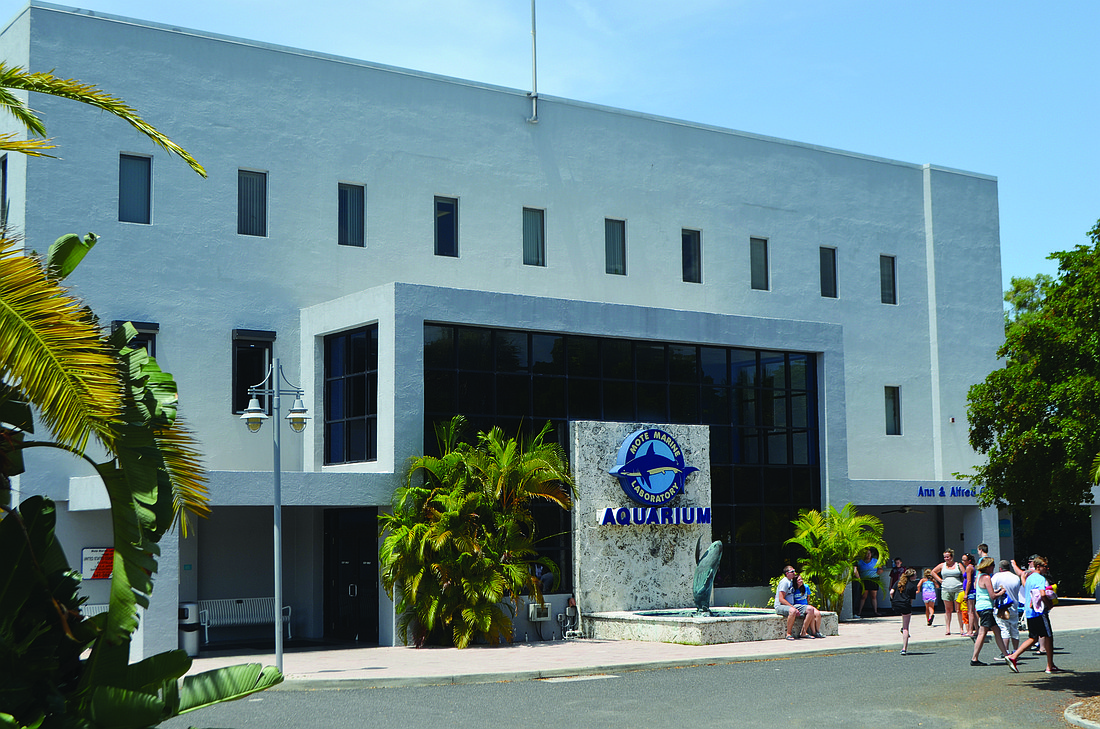- May 2, 2024
-
-
Loading

Loading

Nineteen organizations have a lease agreement with the city of Sarasota that allows them to operate on city-owned land and pay $10 or less annually in rent.
Vice Mayor Susan Chapman finds this practice troubling — and she’s calling for the city to take a closer look at the land it leases to other entities.
The city leases more than 240 acres of its land to outside organizations, more than 90 acres of which is leased at a rate of $10 per year or less. Although some of these are short-term agreements, others are not; an agreement with the Sarasota Orchestra for 1.13 acres of land near the bayfront runs through 2096.
In October, Chapman requested a list of the city’s lease agreements, placing a particular emphasis on the $1 leases given to nonprofit organizations. She doesn’t want the conversation limited to just that, saying that there are other lease agreements the city has entered into at a rate below market value. Still, at a
Dec. 1 City Commission meeting, her emphasis was largely on the $1 annual leases.
“Given our city’s financial situation, I would like to look at a financial situation on some of those to see if we can at least get what we lose in taxes,” Chapman said. “We subsidize a lot of different entities, basically.”
One entity Chapman singled out is Mote Marine Laboratory, which leases 9.5 acres of land on City Island via an agreement that runs through 2050. In that lease agreement, signed in 1986, the City Commission recognizes that Mote provides “distinct services which benefit the citizens of this city,” placing a particular emphasis on the maintenance of the marine environment.
At the Dec. 1 Sarasota City Commission meeting, Chapman suggested the organization’s purview has shifted toward an entrepreneurial focus. She cited Mote’s recent sale of its caviar and sturgeon operations to a private, commercial entity.
“I wonder if that should trigger our looking at, reconsidering or renegotiating our lease, since it looks like they’re going to be doing entrepreneurial activities rather than charitable activities,” she said.
Michael Crosby, president and CEO of Mote, attempted to dispel any notion that the organization was shifting its emphasis on marine science and education. He said the sale of the caviar and sturgeon operations was a way for the organization to share its technology and buoy its other work.
“This spin-off, and any future ones, are intended to help support the many important missions of our nonprofit lab,” Crosby said.
Crosby said the City Island location helps the organization pursue its mission effectively.
He also drew attention to the benefits the city derives from Mote’s presence. In addition to the environmental work and research it conducts, Crosby said, Mote also has a $70 million economic impact in Sarasota County, a substantial portion of which impacts the city.
“This is possible in part because of the welcoming and supportive environment provided by our local municipalities, whose encouragement helps make Mote one of the jewels in the crown of Sarasota’s nonprofit community,” Crosby said. “In turn, the public services provided by Mote are priceless.”
City Attorney Robert Fournier said that while he hadn’t examined the specific terms of the Mote lease, it would likely prove difficult to renegotiate the terms of an existing agreement. Although Mote’s lease allows the city to terminate the deal if Mote loses its nonprofit status, any unilateral action on the city’s end would need to be backed by a specific provision in the agreement.
Otherwise, unless Mote is willing to revisit its lease, the city is stuck with the terms to which it has already agreed.
“A lease is a contract,” Fournier said. “It’s an agreement, and it requires the mutual agreement of the two parties to make a change in its provisions.”
Just down the road on City Island, Save Our Seabirds also benefits from a $1 annual lease agreement with the city. That agreement, which allows for the use of 1.46 acres of city-owned land, comes up for renewal in 2018; should the city re-examine its leasing policy, Save Our Seabirds could be one of the first groups to feel the impact.
David Pilston, CEO of Save Our Seabirds, said the lease agreement with the city — and the savings generated by it — was crucial to the group’s operations.
“Without this facility at that price, we would not be as successful as we are,” Pilston said.
Although the city may not have many options when it comes to its long-term leases, Chapman still wants a serious conversation about how the city manages its land.
“A significant portion of our city is covered by dollar-a-year leases,” Chapman said. “In these difficult economic times, maybe we should be looking at what these dollar-a-year leases entail in terms of area and city investment.”
